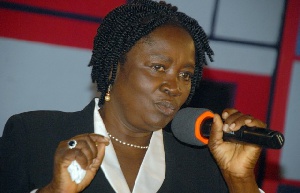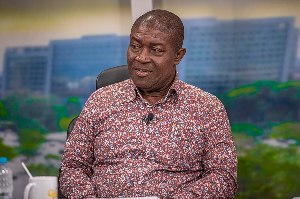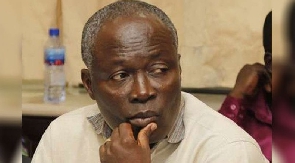The Minister of Education, has hailed the World Bank Africa Higher Education Centres of Excellence (ACE) in Ghana for achieving their set targets and to some extent exceeding them.
The ACE Centres in Ghana include the West Africa Centre for Crop Improvement (WACCI) and the West Africa for Cell Biology of Infectious Pathogens all at the University of Ghana and the Regional Water and Environmental Sanitation Centre (RWESC) at the Kwame Nkrumah University of Science and Technology (KNUST).
Professor Jane Naana Opoku-Agyemang said the three ACE Projects in Ghana, have a strong regional participation in terms of enrolment; and to foster participation from francophone countries, each of the centres have partnered with language and study centres of the host universities to incorporate language immersion programmes, which run concurrently with academic and research schedules of the centres.
Prof Opoku-Agyemang gave the commendation in her keynote address at the opening of Eighth ACE Project Steering Committee Meeting and the Fifth Workshop in Accra.
The three-day meeting is being attended by 200 participants from all the 22 ACEs from West and Central Africa.
The ACE Project which is being finance by the World Bank through the facilitation of the Association of African Universities (AAU), objective is to promote regional specialisation among participating universities in areas that address specific and common regional development challenges, such as science, technology, engineering, mathematics, health and agricultural.
The Bank is making available 150 million dollars for the project, with each selected centre entitled to a maximum of eight million dollars.
The distribution of the centres are Ghana three, Ivory Coast three, Senegal two, Nigeria 10, with Benin, Burkina Faso, Cameroun and Togo having one each; whereas, The Gambia is buying services from the 22 ACEs.
The ACE Project seeks to address regional development challenges, as well as facilitating the delivery of high quality training and applied research, that meet the skills demand of the regional labour market.
On the status of Project in terms of objectives achieved, the Minister said, most of the centres report impressive performance in sourcing for external funding in the form of acquired competitive grants.
She said the Centres have instituted processes to develop and implement sustainability plans, adding that “consultancy services, is very key in their income generation plans”.
She said the ACE Project is having a strong research focus with substantial increase in research publications from the Centres.
“Aside the regional partnerships, the Centres have also established partnerships with other Ghanaian institutions as well and these partnerships were on student training and research collaboration,” she stated.
“For now the ACE projects in Ghana are successfully running with most of them having achieved about 75 per cent of proposed Disbursement Linked Results,” the Minister added.
Prof Etienne Ehile, the Secretary General of the AAU, said improving the quality of African higher education and research lies at the heart of the organisational mandate of the AAU and receives priority attention in the Strategic Plan and Core Programme of the Association.
“The AAU believes that sound, strategic investments in higher education and research in Africa will pay off in the form of strong academic institutions and their societal engagement.
“Such investments have many benefits, including contributing to the development of countries’ intellectual resources, competent workforces, visionary leaders, gender equality and respect for basic human rights,” he said.
Mr Henry Kerali, World Bank Country Director to Ghana, Liberia and Sierra Leone, in a speech read on his behalf said the project is a key path to transform Africa and improve education and health services.
He said the ACE Project would ensure access of the population to safe water and sanitation, increase productivity in agriculture and other sectors, and increase life expectancy of the populations through building on the science, technology, and mathematics.
Mr Andreas Bloom, World Bank Senior Education Economist/ACE Task Team Leader said the Project would build capacity to solve Africa’s development problems through science and technology, which is a key and fundamental role of the universities.
“It is only by building the capacity of the university teams that we can tackle Africa’s problems through knowledge science and technology. We are in progress and have done a lot of work to promote the course,” he said.
“We are around at least 200 PhD students and at least 500 new masters’ students across the 22 centres. Eight new master’s programme opening this month,” he added.
Click to view details



Business News of Tuesday, 17 May 2016
Source: GNA

















